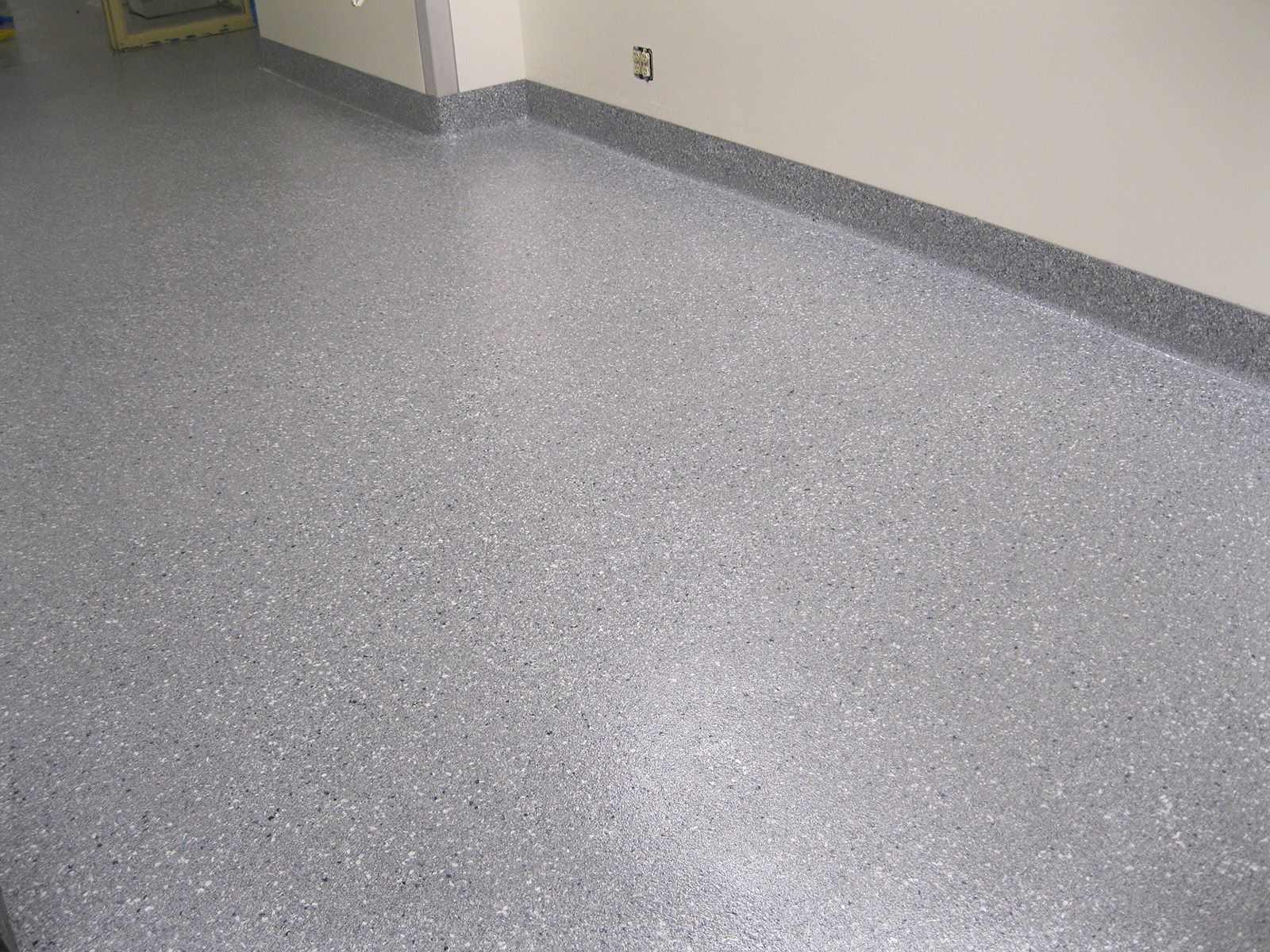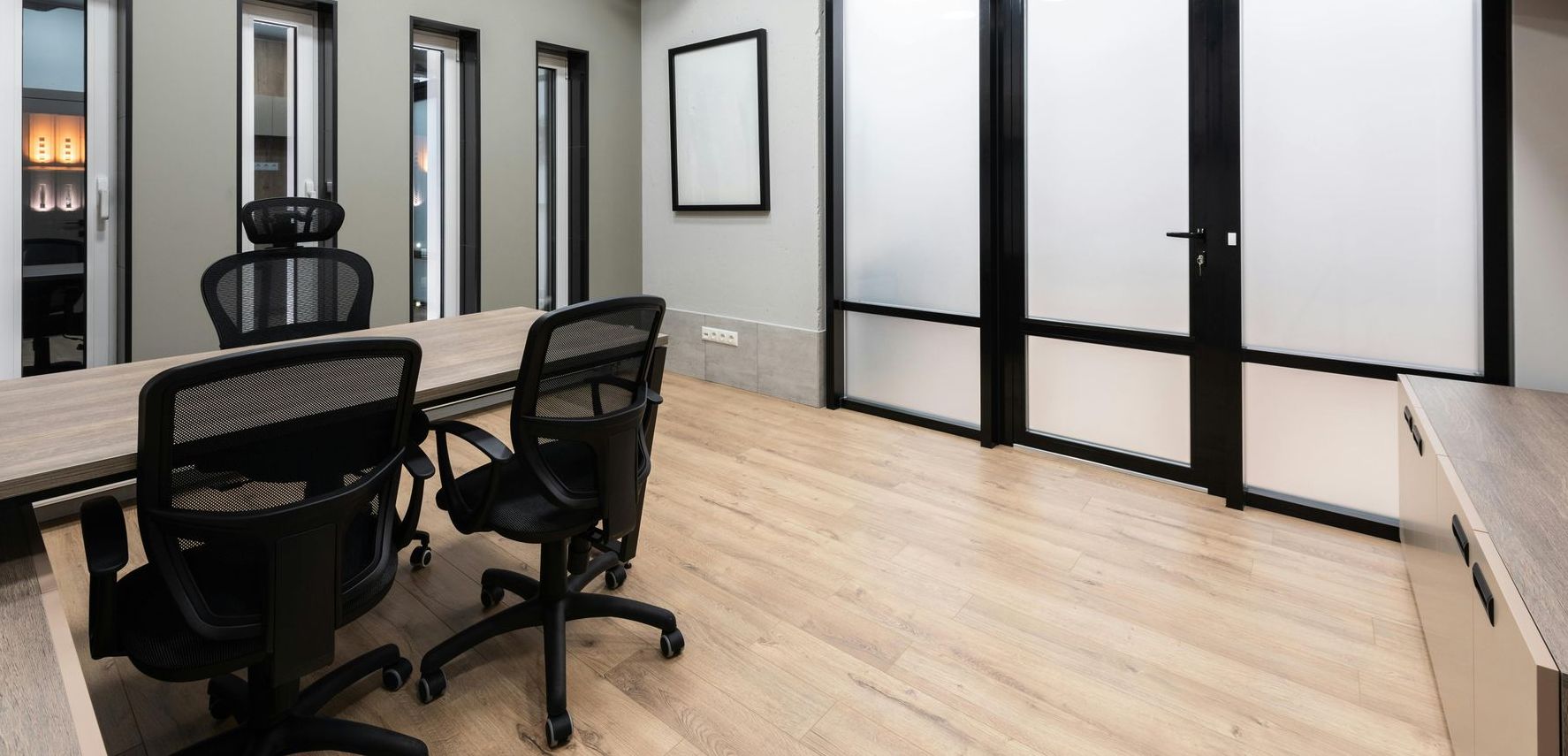Comparing Commercial Flooring Materials: Vinyl vs. Rubber vs. Linoleum
Floors take up the most significant space in your commercial establishment. Therefore, they can make or break its overall appearance and aesthetics. This is already a tough decision, but it does not end there. Flooring for commercial spaces is (and should be) a decision that impacts safety, durability, hygiene, and long-term maintenance.
Three materials are commonly chosen for commercial resilient flooring: vinyl, rubber, and linoleum. But which one is best? Each has its own set of advantages, depending on your commercial space's needs.
In a nutshell:
| LVT - Vinyl | Rubber | Linoleum | |
|---|---|---|---|
| Durability | High | Very High | Moderate |
| Slip Resistance | Moderate | High (wet/dry) | Moderate |
| Chemical Resistance | High | Moderate (oils/solvents affect it) | Moderate |
| Moisture Resistance | Excellent | Excellent | Low (requires sealing) |
| Comfort/Elasticity | Low | High (shock-absorbing) | Moderate |
| Noise Reduction | Moderate | High | Moderate |
| Eco-Friendliness | Low (PVC-based) | Moderate (synthetic/natural options) | High (natural/biodegradable) |
| Sealing-Waxing | Yes & NO, dependent on the brand of vinyl flooring. | NO, the leading rubber floor manufacturers do not require waxing.. | Sometimes, (natural properties) are dependent on the surface factory coating. |
| Maintenance | Wet mob, auto scrub | Auto scrub, low speed auto scrubber | Auto scrub, low-speed auto scrubber, top coat sealer |
| Cost | Mid-to-high | Higher | Mid-to-high |
| Best For | Restrooms, hospitals, offices, retail, cafeterias | Gyms, healthcare, schools, labs, government, multi-purpose rooms | Schools, healthcare, eco-friendly spaces |
1. Vinyl flooring
Vinyl flooring, particularly Luxury Vinyl Tile (LVT), has become a popular flooring choice lately due to its its ability to mimic luxury materials like wood and stone, while still offering durability. It is also a more affordable choice—making it a good value for money flooring. In 2023, LVT flooring sales in the United States amounted to $9.4 billion. Ultimately, with LVT, you can enjoy the aesthetics of luxury flooring in a more practical way. In a healthcare, food, or restroom environment, we recommend sheet vinyl flooring that offers heat-welded seams.
What is vinyl flooring made of?
The core layer of LVT vinyl is mainly composed of polyvinyl chloride (PVC), which provides its strength and flexibility. Its wear layer—usually a transparent urethane or specialty factory-applied coating—offers protection against scratches and scuffs, making it a good option for high-traffic areas. This wear layer protects the top or surface layer (printed design), which lends it its overall longevity in both aesthetics and functionality. Sheet vinyl offers homogeneous and heterogeneous design options.
Pros of vinyl flooring
- LVT and Sheet Vinyl are resistant to chemical agents. When exposed to chemical cleaners, disinfectants, or solvents, they are resistant, which is particularly important in healthcare environments, kitchens, or laboratories.
- Sheet Vinyl is non-porous, making it a good choice for industries where water or moisture is present, such as kitchens, bathrooms, or hospital settings.
- LVT offers many different design options, with look tile or plank sizes.
- Vinyl has thermal insulation properties. It can reduce heat transfer and maintain stable indoor temperatures, which can contribute to energy efficiency and cooling costs in commercial buildings.
- Vinyl can offer acoustic properties that help reduce noise levels, creating a quieter and more peaceful environment.
Cons of vinyl flooring
- Traditional vinyl may emit VOCs, especially during installation. However, many manufacturers now offer low-VOC or VOC-free options.
- In the case of damage, especially with sheet vinyl, repair can require replacing entire sections rather than patching small areas.
Vinyl flooring is ideal for hospitals, corporate offices, retail stores, and schools because it’s versatile, easy to maintain, and resistant to chemicals.
2. Rubber
Rubber flooring is usally made from natural rubber or synthetic materials such as styrene-butadiene rubber (SBR). Its is highly shock absorbent and slip-resistant, which makes it a great pick for safety-critical settings.
What is rubber flooring made of?
Rubber’s molecular structure is what makes it highly elastic. This allows it to withstand heavy foot traffic without reforming. The material also helps maintain grip, even when wet.
Pros of rubber flooring
- Rubber is an acoustical leader because it is noise-absorbing. Because of its elastic and dense composition, it can dampen sound, which is great for gyms, schools, and arenas.
- Rubber is shock absorbent. It reduces fatigue in people standing for long periods, vehicle also providing cushioning for machinery and equiment.
- Rubber can take on heavy loads. It can withstand compression and impact from heavy equipment.
Cons of rubber flooring
- Although rubber can resist mild chemicals, it may degrade or fade when exposed to fats, oils, or rubber tires.
- Rubber can be a bigger upfront cost compared to its two common counterparts.
Rubber flooring is ideal for gyms, multi-purpose, cafeteria areas, schools, arenas, some healthcare facilities, and industrial settings.
3. Linoleum
Linoleum is a famous eco-friendly flooring materials, composed primarily of renewable resources like linseed oil, cork dust, wood flour, and natural pigments. It’s also naturally antimicrobial, because of the oxidative nature of linseed oil.
What is linoleum made of?
The linoleum curing makes the linseed oil to oxidize and polymerize, which creates a highly durable surface resistant to wear. Unlike vinyl, which is more plastic-like, linoleum’s natural fibers provide a softer, more resilient surface while maintaining durable flooring.
Pros of linoleum flooring
- Linoleum is anti microbial, as the natural oxidation of linseed oil continuously resists microbial growth.
- Linoleum is a a biodegradable product. Due to this, it has a lower environmental impact compared to vinyl or rubber, which are typically petroleum-based.
- Linoleum is static resistant, as it is naturally low in electrostatic discharge.
Cons of linoleum flooring
- While linoleum is highly durable, it is not as water-resistant as vinyl. Over time, exposure to high moisture levels can lead to swelling or warping.
- Linoleum needs to be sealed regularly to protect against moisture and stains, which can require more maintenance work.
Linoleum flooring is ideal for schools, offices, and spaces focused on sustainability and indoor air quality.
Take Your Floors To Another Level
All County Flooring specializes in commercial flooring solutions for businesses! Our flooring solutions and services encompass a wide range of options, including acoustical flooring such as hybrid carpeting designed for sound-sensitive areas. We also offer creative flooring alternatives like luxury vinyl plank and tile, rubber flooring, linoleum, and versatile PVC-free or commercial vinyl solutions. You’re one step closer to better floors, click here to schedule an consultation!
Get Started with All County Flooring
Get in touch today to schedule a free design consultation and quote. We'll walk through your space, discuss your needs, and provide expert recommendations tailored specifically for you.





